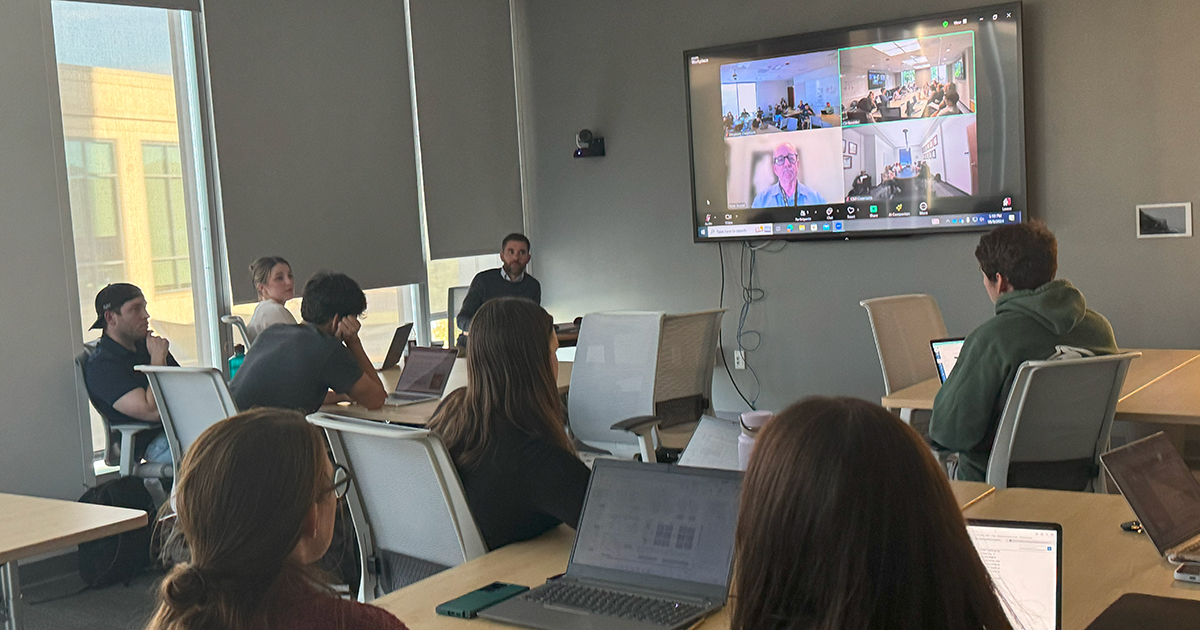
Category: Kinesiology & Applied Physiology
Innovative Learning Approach
October 14, 2024 Written by Amy Cherry | Photos by Amy Cherry and Ashley Barnas Larrimore
Martens' Physiology of Aging class brings world-renowned experts into classroom
A year ago, Erica Johnson’s father was diagnosed with stage four non-clear cell renal cell carcinoma. The rare, aggressive form of cancer can be difficult to diagnose.
“The kidneys were hard for me to understand, so I studied them extensively before my comprehensive exam,” said Johnson, a third-year doctoral student in the University of Delaware College of Health Sciences’ Applied Physiology PhD Program.
Her studying and advanced knowledge paid off. Johnson’s father might never have received his diagnosis had she not shown up to his appointments, asked specific questions, and advocated on his behalf.
Her doctoral studies remain relevant to her father’s treatment and her research interests. Johnson, who also got her undergraduate degree in health behavior science from UD, is currently enrolled in Associate Professor of Kinesiology and Applied Physiology Christopher Martens’ Physiology of Aging (KAAP 640) class.
The innovative class is taught in collaboration with Associate Professor Tom LaRocca at Colorado State University (CSU) and Professor Douglas Seals at the University of Colorado Boulder (CU Boulder), where Martens and LaRocca were postdoctoral fellows between 2014 and 2017. While at CU Boulder, Martens and LaRocca co-led the class with Professor Seals. At the time, they leveraged Skype to connect the classroom to world-renowned speakers at a single site.
Years later, Martens wanted to start a similar class at UD, and instead of reinventing the wheel, he joined forces. Now, students from UD learn virtually alongside their peers from CSU and CU Boulder as they meet in their respective classrooms on Tuesdays at 4 p.m. (EST). Each week, they hear from a different expert in aging over Zoom and ask questions.
“Students hear from experts at conferences but rarely get the opportunity to engage with them and ask questions,” said Martens. “These lectures are also tailored for our class, adding value each week.”
Getting older is the number one risk factor for nearly all of today’s leading causes of disease and disability. The course exposes students to the challenges of an aging society, including its impact on the healthcare system and potential strategies for increasing “healthspan” – the period of life in which we remain healthy and free of chronic disease. Speakers range from medical doctors, such as geriatricians, to researchers across various disciplines, from molecular biology to population health.
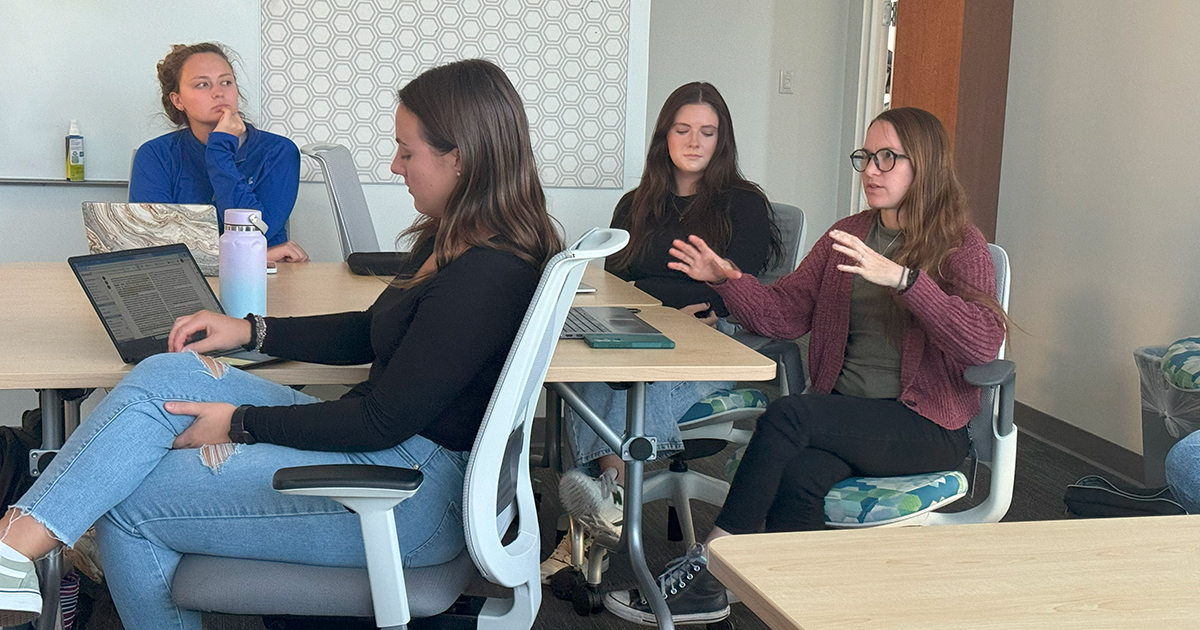
“Hearing from so many scientists with different research backgrounds from around the world and their take on various aspects of aging has been invaluable,” said Johnson. “It opens up the floor for a healthy debate where we all bounce our opinions and ideas off one another scientifically.”
UD students also benefit from learning and interacting with students in similar programs.
“It’s interesting to see how students at CU Boulder and CSU ask questions and interpret the information differently,” said Martens. “It helps them to break out of their bubbles by hearing how others think.”
After they disconnect, students on each campus discuss the presentation in conversations guided by faculty.
“There are differences of opinion in what some experts are saying,” Martens said. “A few weeks ago, we had a contentious healthy debate about whether humans have reached their maximum lifespan; it sparked a fascinating conversation.”
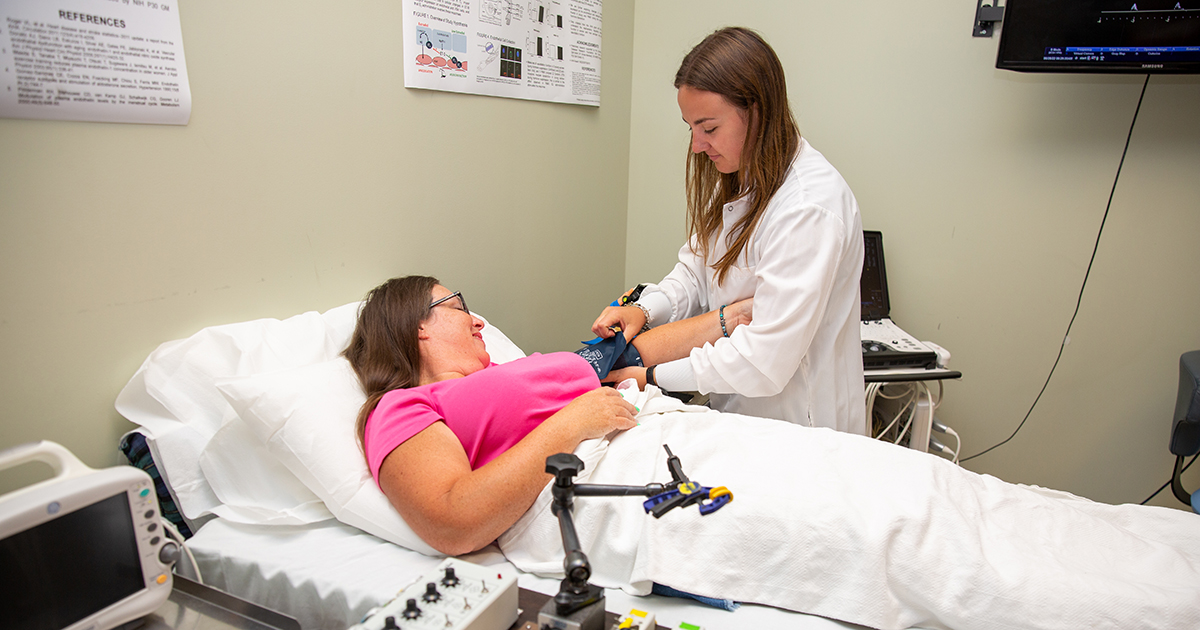
Students find value in innovative learning style
Ally Schwab, who obtained her master’s in exercise physiology at UD and is now in KAAP’s Applied Physiology PhD program, has never taken a class like this.
“I haven’t had a class with more than one guest speaker in an entire semester,” Schwab said. “These speakers often present worldwide, so we’re lucky to have them.”
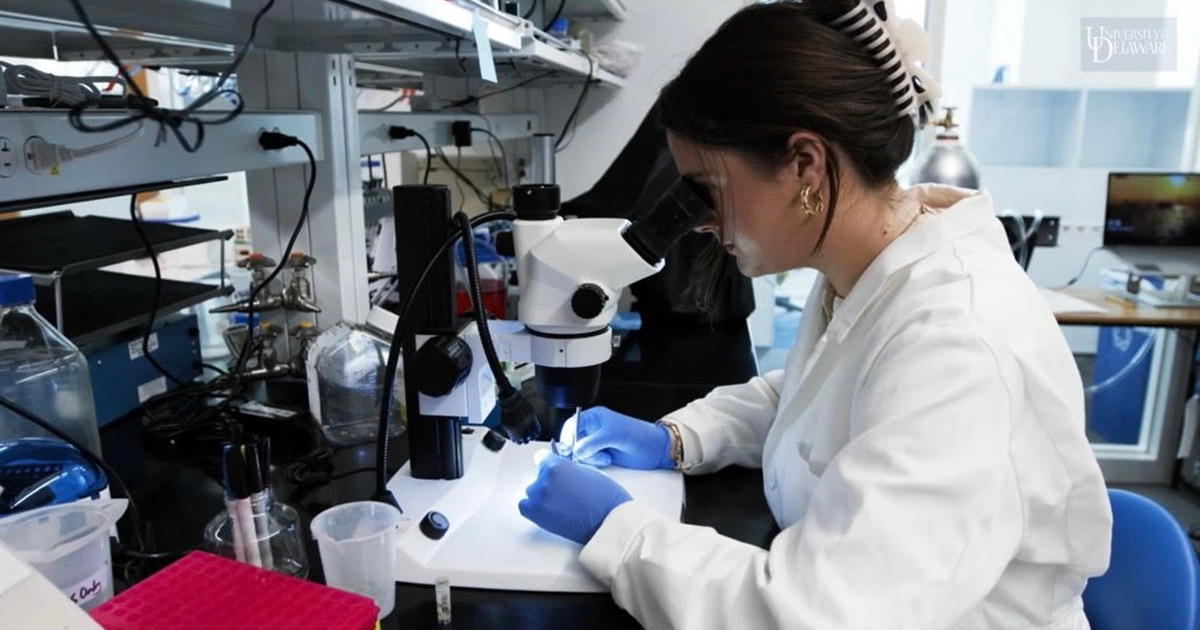
The course also offers a rare opportunity for a handful of undergraduate students to learn alongside master’s and doctoral students.
“Everyone is in the class for a different reason, and we’re all finding value in it,” Johnson said.
Johnson, who studies obesity and cardiovascular disease and works in Assistant Professor Ibra Fancher’s Vascular Ion Channel Laboratory, has found specific ties to her research and her father’s cancer.
“The speakers have presented on cardiovascular disease, RNA sequencing, and how the diabetes medication Metformin and Rapamycin, an mTOR inhibitor, can slow aging.
“My dad recently started taking an mTOR inhibitor, and it’s been a game-changer for his treatment, so I took a specific interest in research that the chemotherapy drug could also be used to slow aging,” Johnson said.
Schwab has found the Physiology of Aging class relevant to her work in Associate Professor Megan Wenner’s Women’s Cardiovascular Research Lab.
“This class has been a great way to gain a perspective on cognitive aging,” Schwab said. “My work focuses on women and cardiovascular disease, but we’ve discussed cellular mechanisms, drug therapeutic options, and biomechanics. It’s given me new research questions and perspectives.”
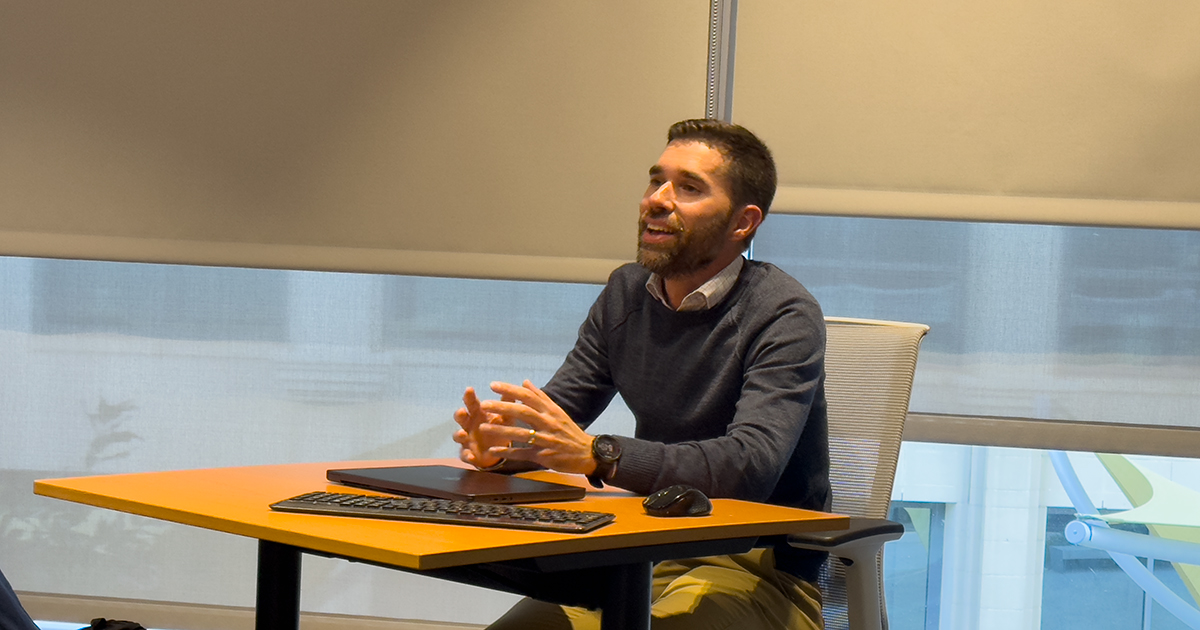
Expanding learning opportunities
Martens would love to see this innovative form of learning adopted by other classes, noting its advantages over strictly online or hybrid courses.
“We’re all watching online together, and then we talk about it and hear the differences of opinion in the room,” said Martens. “This format could easily be applied to any discipline in the College, which could then leverage worldwide experts and bring them into our classrooms.”
Martens also sees the opportunity for cross-college collaborations to grow the class.
“Many students and faculty across departments are studying various aspects of aging,” he said. “This course is broad, appeals to many disciplines, and could bring everyone together.”

